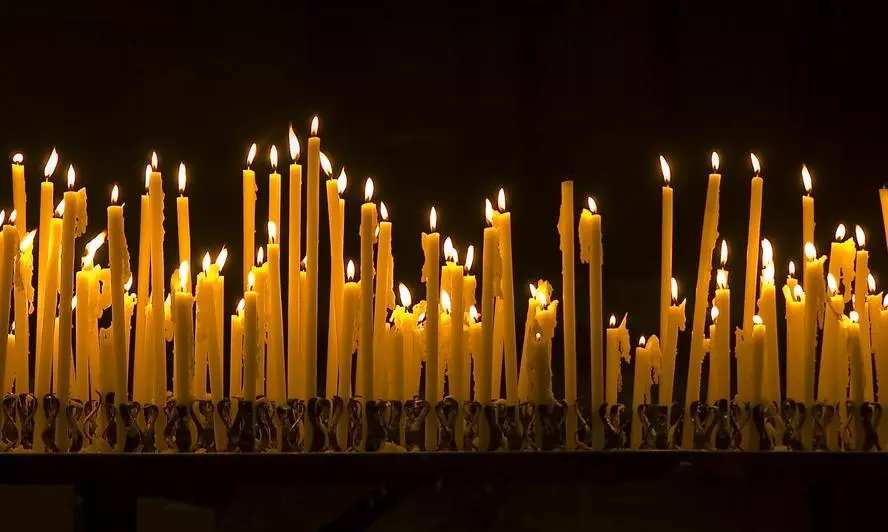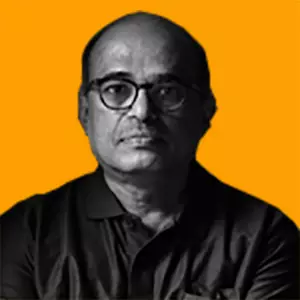
- Home
- India
- World
- Premium
- THE FEDERAL SPECIAL
- Analysis
- States
- Perspective
- Videos
- Sports
- Education
- Entertainment
- Elections
- Features
- Health
- Business
- Series
- In memoriam: Sheikh Mujibur Rahman
- Bishnoi's Men
- NEET TANGLE
- Economy Series
- Earth Day
- Kashmir’s Frozen Turbulence
- India@75
- The legend of Ramjanmabhoomi
- Liberalisation@30
- How to tame a dragon
- Celebrating biodiversity
- Farm Matters
- 50 days of solitude
- Bringing Migrants Home
- Budget 2020
- Jharkhand Votes
- The Federal Investigates
- The Federal Impact
- Vanishing Sand
- Gandhi @ 150
- Andhra Today
- Field report
- Operation Gulmarg
- Pandemic @1 Mn in India
- The Federal Year-End
- The Zero Year
- Science
- Brand studio
- Newsletter
- Elections 2024
- Events
- Home
- IndiaIndia
- World
- Analysis
- StatesStates
- PerspectivePerspective
- VideosVideos
- Sports
- Education
- Entertainment
- ElectionsElections
- Features
- Health
- BusinessBusiness
- Premium
- Loading...
Premium - Events

Kerala is teeming with cults like Jehovah’s Witnesses, akin to Punjab's Dera Sacha Sauda; what they offer is a heady mix of money and salvation
When a series of low-intensity bombs went off inside a congregation of Jehovah’s Witnesses in central Kerala’s Kalamassery near Kochi on October 29, it was a clear indication of the potential dangers that such cults pose to the security of any state where such groups proliferate. Kerala’s highly educated population ironically offers a fertile ground for the growth of such cults for various reasons which are examined in this article.
Out of its 3.5 crore population, Christians form 20 percent — not a big number, but with the 25 percent Muslim population, form a solid minority defensive wall against majoritarianism which never took root in Kerala. Christians in the state are all educated, and various churches have their own higher educational institutions and hospitals that look after their folk.
While such a grouping has its strengths, the irony is that a large number of Christians — mostly nurses — have migrated. A recent survey by the protestant Mar Thoma Church showed that every alternate Marthomite family had a member living abroad. So, how does this result in revivalist groups growing in numbers? These groups prey on the newly educated and newly converted population who are emerging from a poor agricultural life since their parents are uneducated and promise them the world.
Quid pro quo
These revivalist groups look after their old parents while the children are away, give them prominent positions in church — something denied to them in legacy churches — and educate the newly converted. Also, a decent burial and a place in the graveyard are offered apart from cash when needed.
In return, they have to attend church sessions and two- or three-day revivalist meetings like the one in Kalamassery which unfortunately ended in a terrible IED (improvised explosive device) bombing that killed three people.
A huge number of poor Christians (and converts), who are beneficiaries of Kerala’s education system, somehow find themselves treated as second-class citizens in legacy churches like the Church of South India (CSI), Mar Thoma church and the Roman Catholic church, where the aristocratic rich rule the roost. In such churches, the front rows during mass are perforce occupied by the aristocratic and land-owning class while the newly educated and the poor are pushed to the fringes. Even the weekly house prayer meetings in Protestant churches are only hosted by the rich families with big houses where the priests and bishops also congregate, showing where their allegiances lie.
The new cults changed all that and gave the poor a place in the front rows. Dignity was a bonus. There is no hierarchy or priests in such cults and everyone has a place at the altar; hence their growing popularity.
Four big cults
There are now at least four big such Christian cults operating in Kerala. Migrant Keralites and the newly educated class form a big slice of their numbers. Apart from Jehovah’s Witnesses and Seventh Day Adventists, which are legacy Christian groups more than a hundred years old, new revivalist groups like Heavenly Feast and Believers Church thrive mostly in the central Kerala districts of Thrissur, Ernakulam, Kottayam, and stretching south. These cults and revivalists groups, which believe in a literal interpretation of the Bible, offer various fundamental teachings and could have a combined membership of close to a million.
Apart from this, there is a charismatic retreat centre called Potta run by a former Catholic priest in Thrissur which has now evolved into a cult. The Potta ashram started in 1977 by a Catholic has so far attracted 10 million people from around the world for its retreats, according to the group website.
Frenzied prayer sessions with people shouting in strange syllables is a characteristic of these cults. Heavenly Feast focuses on faith healing, which is also a big draw. Legacy churches which claim lineage stretching 2,000 years all the way to Christ’s disciples are losing out to these revivalists, Pentecostals, Mormons, Methodists and various other branches of American churches which have set up bases in Kerala apart from the North-East.
Education, regression
To millions of such people, education does not mean a search for modernity or rational thinking and progress. Millions of Kerala Christians who spend their time in modern and even futuristic institutions around the world, strangely regress into irrational thinking back home, spurred on by frenetic orators at these cults and due to their search for salvation and eternal life. They throw caution to the wind and become cult members, not realising the dangers of fundamental teachings.
Any surprise then that the Jehovah’s Witnesses bomber Dominic Martin reportedly worked as a foreman in a big company in Dubai while back home in Kerala he was a cultist who finally broke ranks and bombed the place saying on FB Live that these cults were ‘dangerous’ and ‘anti-national’?
He seems to have a point. The messages in the meetings are completely dangerous to any society, though on the outside they indulge in various social services to win over people. Jehovah’s Witnesses members have claimed time and again that the world is going to end and have made members gather together in halls and pray to be saved when the world ends.
Orators and leaders of such groups have a vice-like grip over the audience. Such oratory is what transforms many cultists into people of extreme violence like in the case of Martin, who was a completely ordinary hard-working man with no police record.
The very fact that 2,000 people attended the Jehovah’s Witnesses prayer meeting in a state with numerous churches — both legacy, and glitzy and huge — is an indication that Christianity itself has found various other new directions without the help of various bishops and cardinals who had a monopoly on granting salvation.
Strength to strength
KP Yohannan, a former duck farmer the founder of the Believers Church, which has now built a big hospital in Thiruvalla, announced a few years ago that he has become a bishop. By doing so, he was showing the other churches that benediction to become a bishop is no one’s monopoly.
Flush with funds and raided once by the Income-Tax Department which unearthed huge amounts of cash, Yohannan is moving from strength to strength. Three years ago, he bought a house opposite the Raj Bhavan in Thiruvananthapuram, a few metres away from the Catholic Bishop’s House, a grand British-era palace with Gothic pillars.
Yohannan showed Kerala Christians that salvation comes with money and he had the power to dole out both. The irony is that many educated people believe him. In front of his oratory, churches blessed by St Peter stand no chance.
Similar pattern
Cults and sects belonging to any religion show the same behavioural patterns. Some of this is explained in detail in the book on the Punjab cult Dera Sacha Sauda, by Anurag Tripathi. Cult leader Ram Rahim lured millions of poor farmers and trapped them forever and finally, they laid siege to the state itself.
This Dera culture foresaw the Jehovah’s Witnesses bombing. Once inside the cult, it is impossible to move out. Political parties see them as captive vote banks and let them flourish. Neither the BJP's Haryana government nor the Marxist Kerala government has the guts to move against such cults. The result is such incidents.
Looking at all this, it is clear that Kerala has not benefited at all from educating its entire population. There are no jobs in Kerala, no industry, or entrepreneurial culture even compared to the neighbouring Tamil Nadu. Instead, it has become a fertile ground for peddlers of salvation, Jesus freaks and roadside Pentecostals.
The intelligent or hard working settle abroad, some who join the revolution loiter around and many Christians and even Hindus seek peace in retreat centres like Potta. Sometimes, the peace can be shattered by bombs.
(Binoo K John is the author, among other books, of the recently published Top Game: Winning, Losing and a New Understanding of Sport (Speaking Tiger).)
(The Federal seeks to present views and opinions from all sides of the spectrum. The information, ideas or opinions in the articles are of the author and do not necessarily reflect the views of The Federal.)


